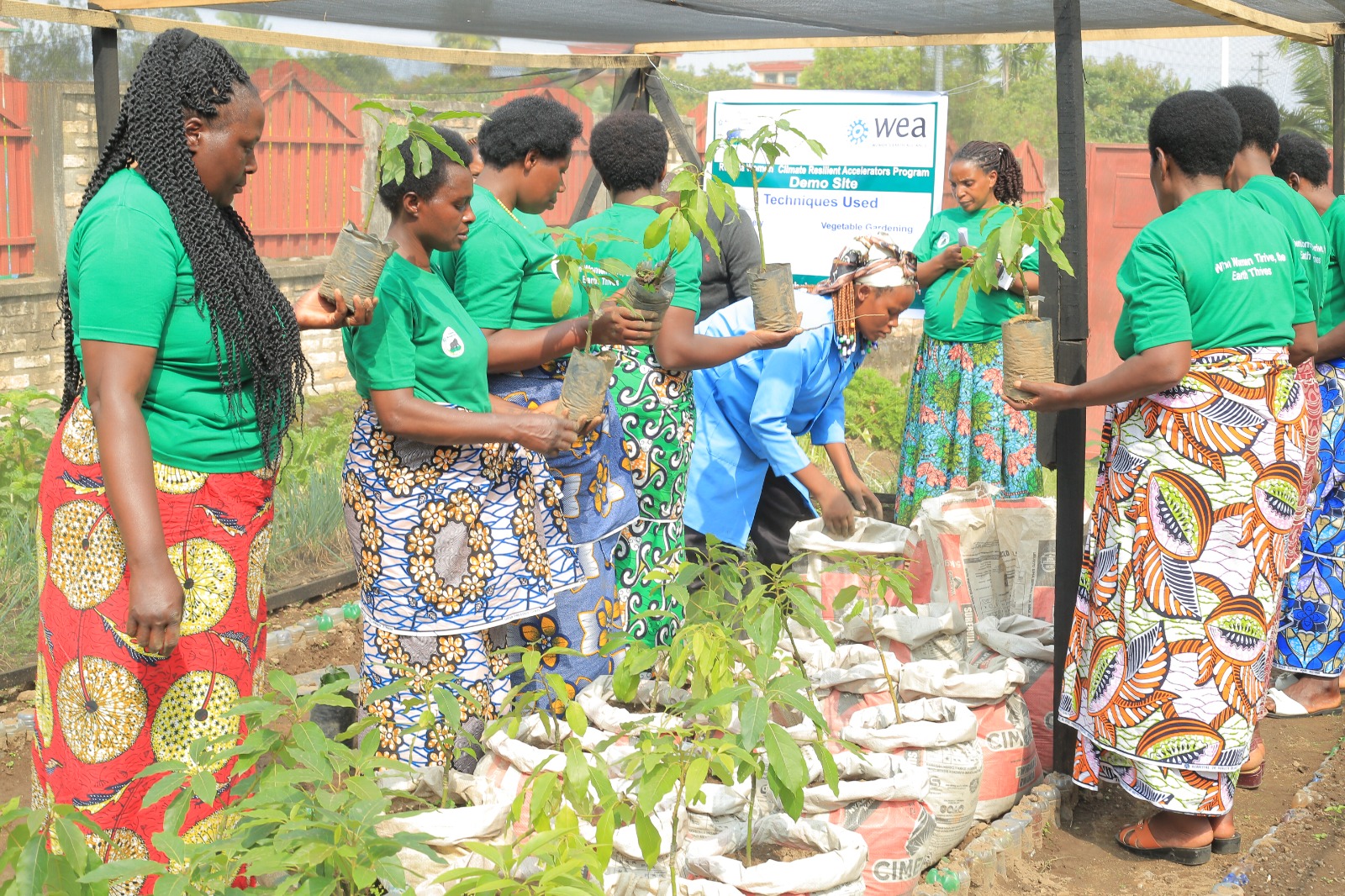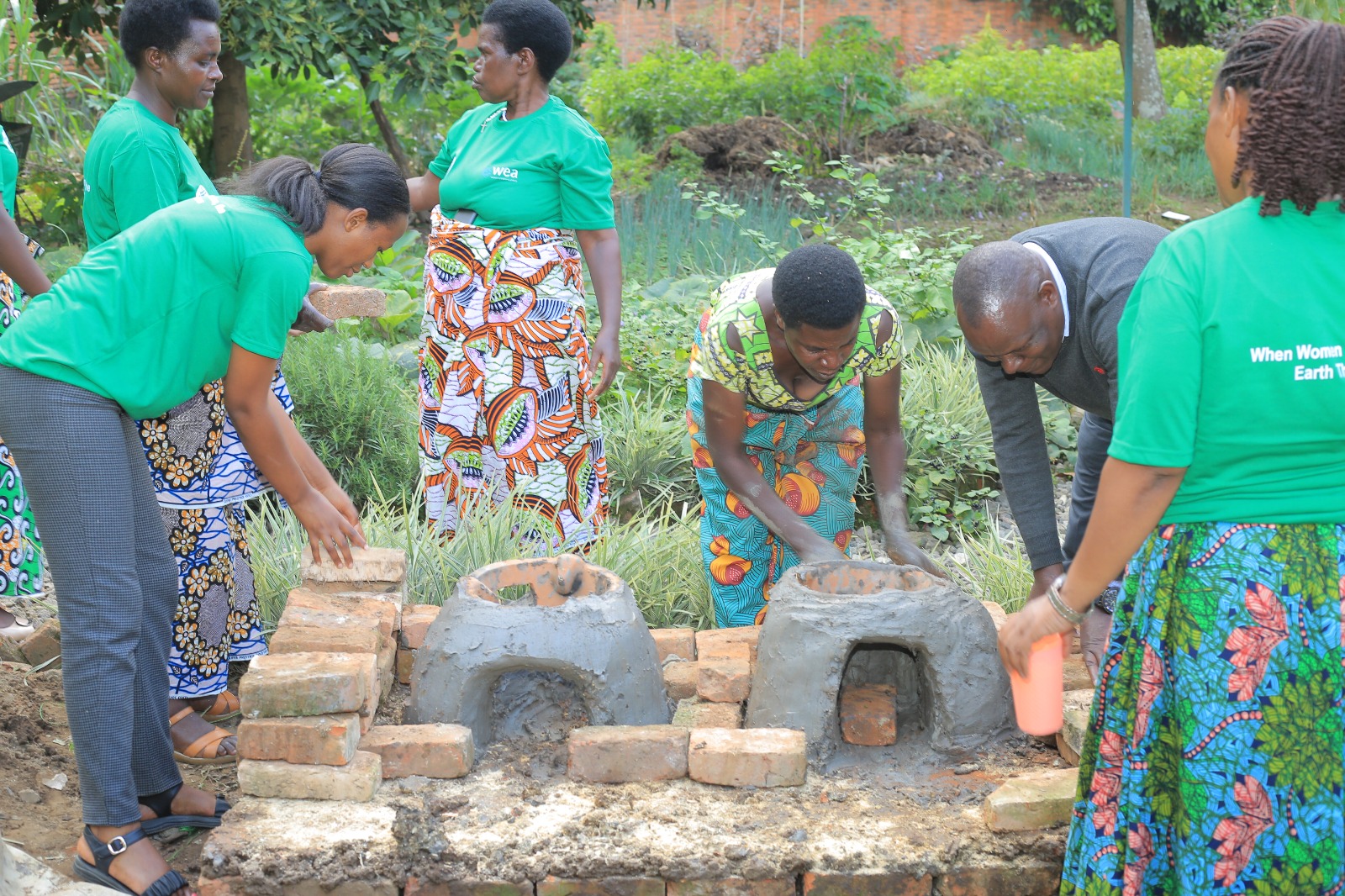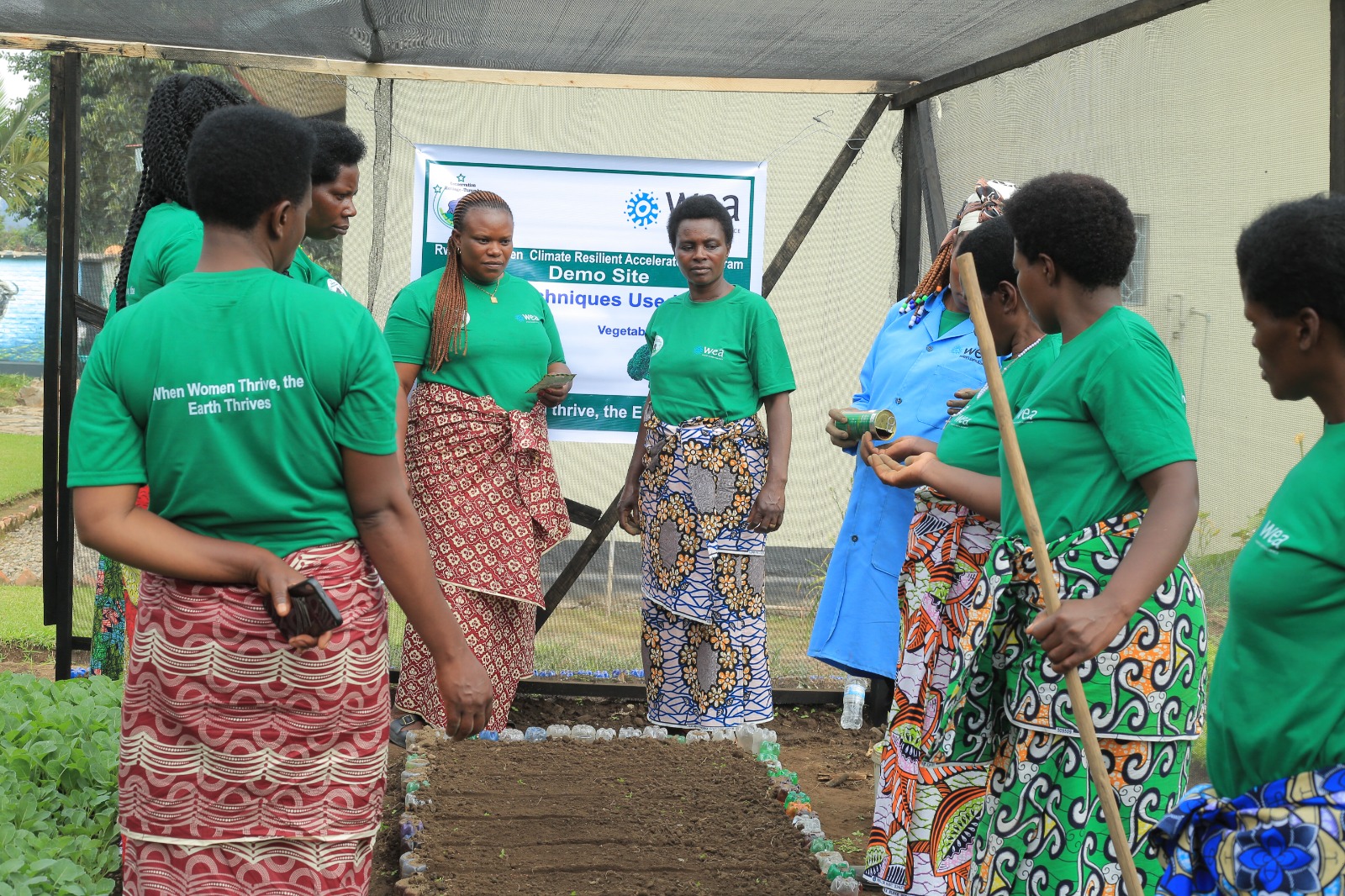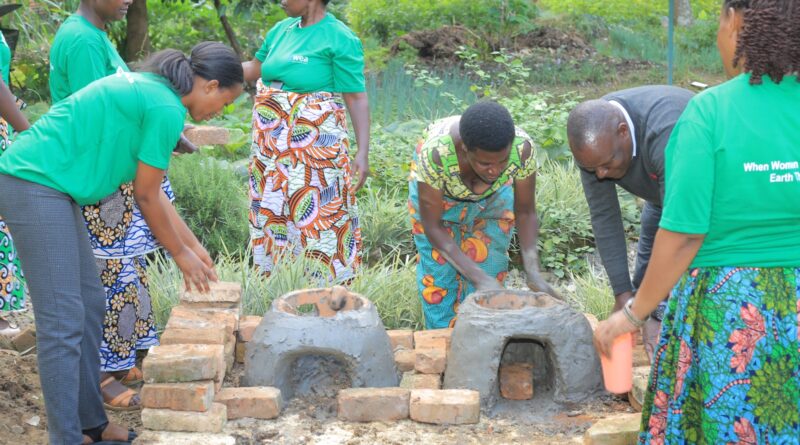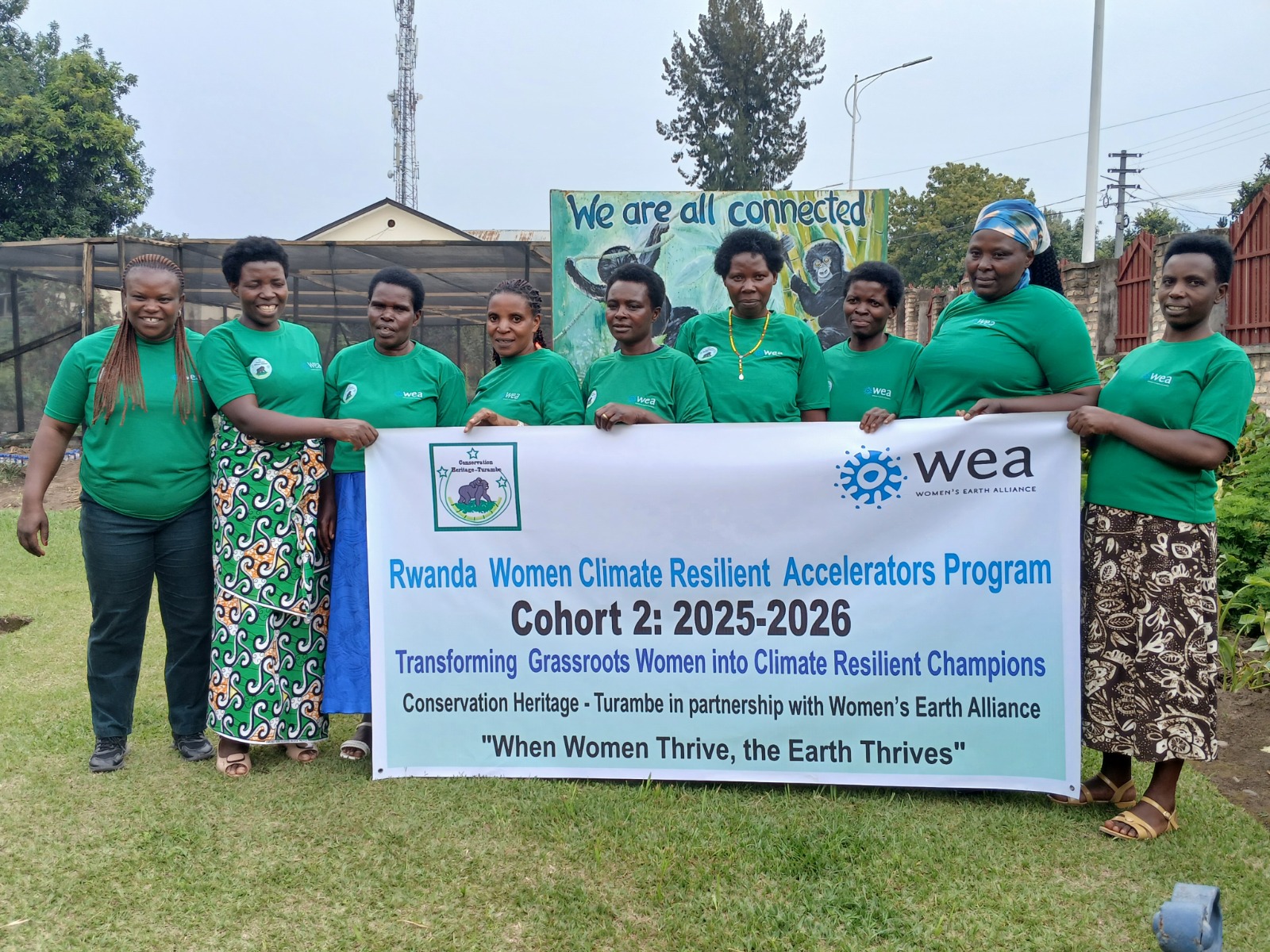Musanze: Women trained to become Climate Resilient Champions to address Climate Crises within their Communities
The Conservation Heritage–Turambe, in partnership with Women’s Earth Alliance (WEA), trained Eight Self-Help Group leaders under the Rwanda Women Climate Resilient Accelerators Program, Cohort 2 (2025–2026).The program, themed “Transforming Grassroots Women Into Climate Resilient Champions,” aimed to equip women with knowledge to address climate change, which directly affects their daily lives as well as wider community activities.
The two-day training, followed by a third day of field visits to their groups, was held in Musanze District from September 11–12, 2025. The participants came from Kinigi and Nyange sectors, both located near Volcanoes National Park. Representing different women’s groups, these participants will serve as Trainers of Trainees, passing on the knowledge to others.
The sessions focused on understanding the impacts and causes of climate change, strategies for environmental protection, sustainable farming practices, replacing traditional cooking stoves with energy-saving stoves to reduce deforestation and harmful emissions, and how to initiate small-scale projects that both conserve nature and improve livelihoods, supported by financial resources from the partner organizations.
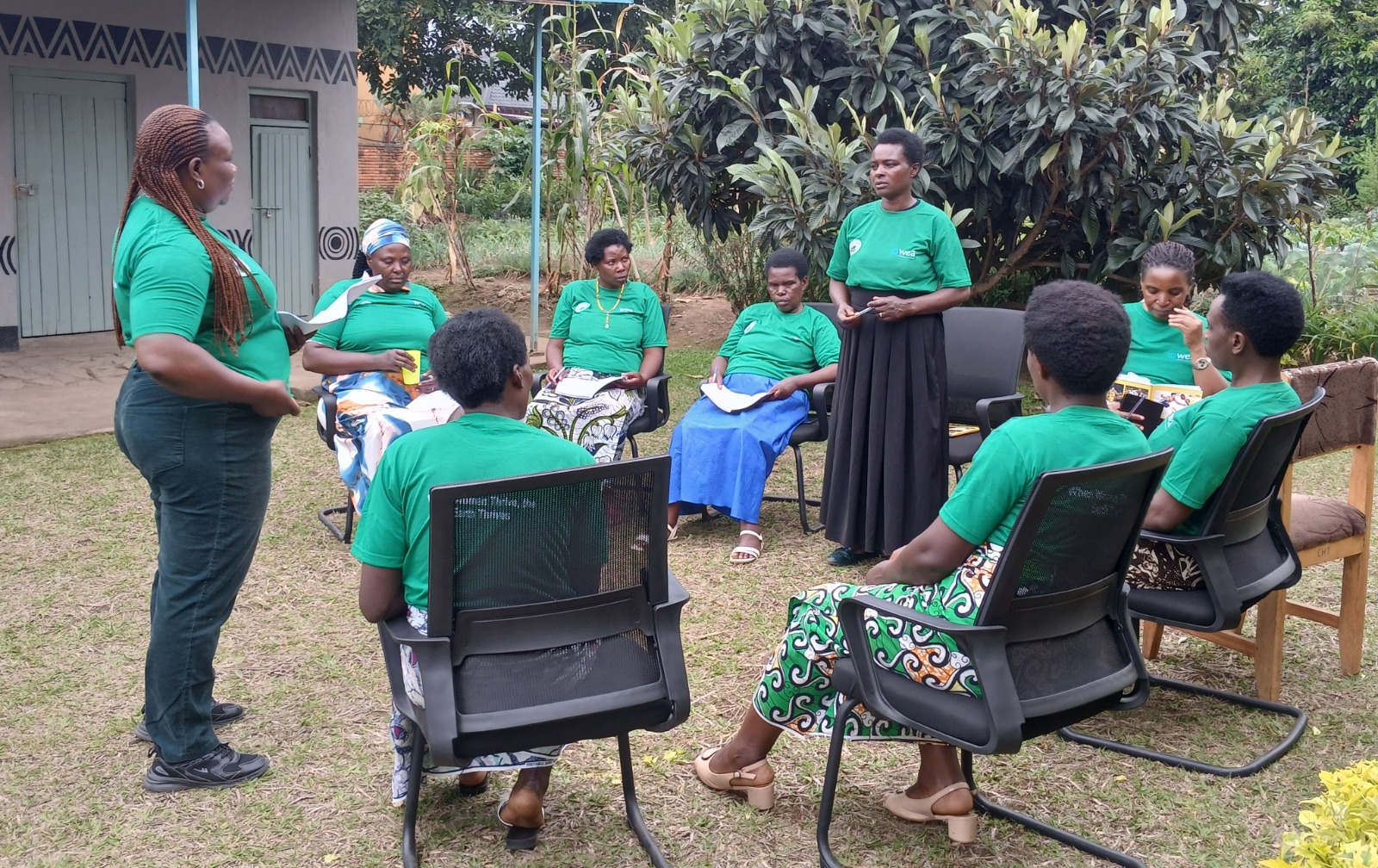
Jolise Mukamazera from Nyange Sector said she gained advanced knowledge about climate change. “Through this training I learned that as women, we can develop projects that protect the environment while improving our own lives. We found that we could plant fruit trees to provide clean air, attract rainfall, shield our homes from strong winds, and also harvest fruit to eat and sell for income.”
Immaculée Nyiramahoro, leader of the group Tubungabunge Ibidukikije (Let’s Protect the Environment) from Kinigi Sector, highlighted how the training improved their awareness: “We were taught to design simple projects such as growing vegetables, planting trees intercropped with crops to fight erosion and produce organic manure. Before, most of us lacked solid knowledge about climate change and its impacts, but now we have something valuable to share with others, and we are ready to put it into practice.”
Project coordinator Pacifique Abimana explained that the initiative is designed to empower women: “This program promotes women’s leadership, teaching them why they are most affected by climate change and why they must take the lead in tackling it. We encourage them to create small projects that generate income while preserving the environment.”
Valerie Akuredusenge, a program Director of Conservation Heritage–Turambe, underlined the importance of such training: “We found that many of these women had limited knowledge about climate change. Through our discussions, they realized that this is a long-term issue caused by factors such as emissions from petrol and diesel vehicles, burning grasses to clear farmland, burning old clothes, and using traditional stoves that waste firewood and release large amounts of smoke into the air.”
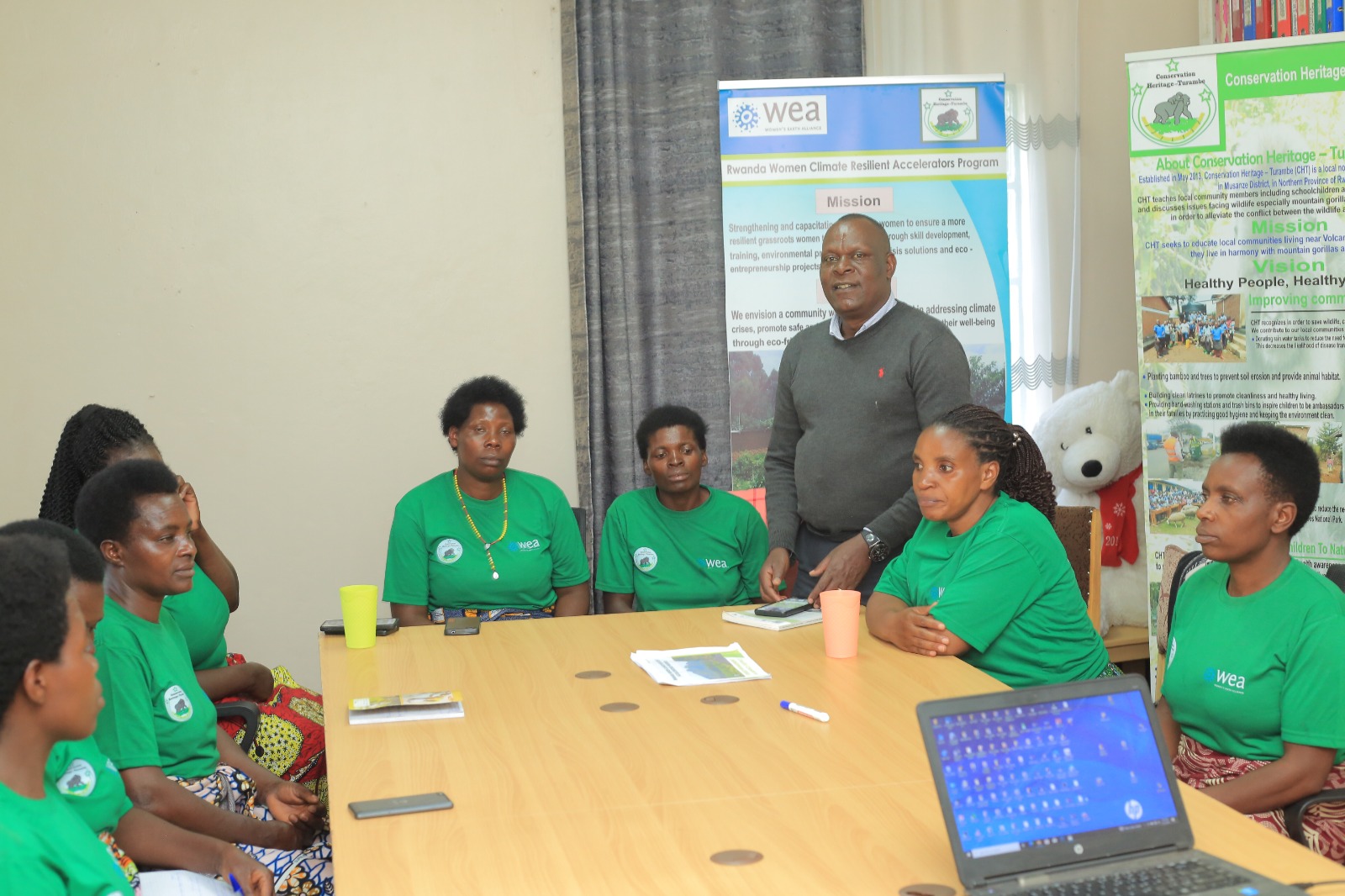
Jean Ngendahayo, Musanze District officer in charge of agriculture, livestock, and natural resources, emphasized women’s vital role: “The actions of these eight trained women and their groups will significantly contribute to environmental protection, climate change mitigation, and organic farming. Since women are the most affected in their daily household roles, the knowledge they gain is easily passed on to their children, ensuring long-term change.”
He added that their shift toward eco-friendly agriculture will also help preserve soil and biodiversity, while protecting their own health compared to chemical-based farming that relies heavily on synthetic fertilizers and pesticides.
These efforts are aligned with Rwanda’s national climate agenda, including the Nationally Determined Contributions (NDCs), the Green Growth and Climate Resilience Strategy (GGCRS) launched in 2011, and Vision 2050, which prioritizes sustainable development.
Rwanda has committed to cutting greenhouse gas emissions by 38% by 2030, increasing renewable energy use to over 50% by 2050, and building a green, climate-resilient economy.
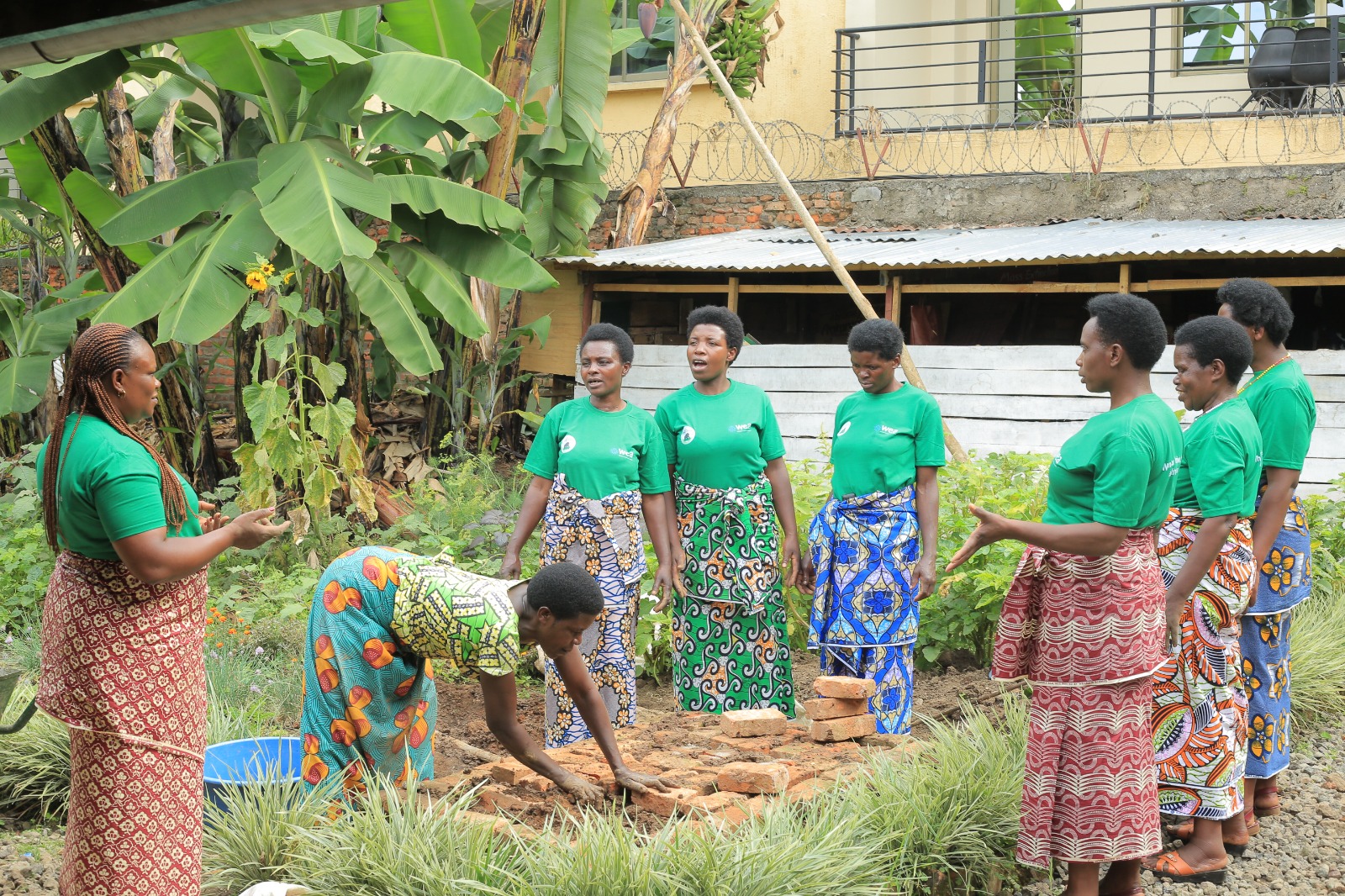
The work of these eight trained women in Musanze is a strong example of how Rwanda’s national strategies can be implemented at the grassroots level, demonstrating how community-driven initiatives can play a key role in tackling climate change while promoting sustainable livelihoods.
The eight women already lead groups of more than 150 other women, and they are expected to transfer their newly acquired knowledge to their members, creating a ripple effect of resilience and empowerment across their communities.
Related story
